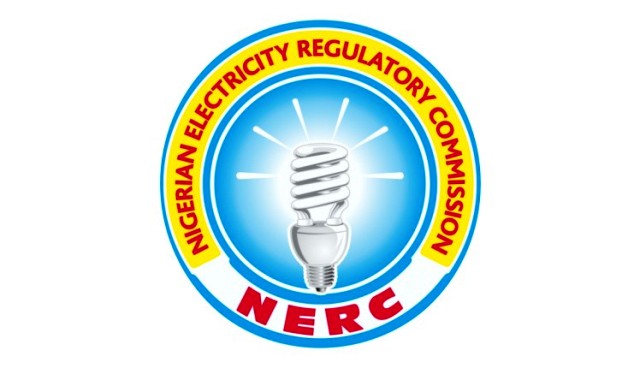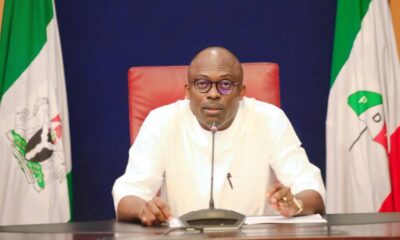Politics
A Case For Political Order In Nigeria
Their authority was personal, derived from charisma or rank, so that the choice for the people, so far as they had a choice, lay between the demagogue and the general. Some were good, some were bad, but all lacked systematic political backing.
They were obliged, therefore, to rely on their wits or swords. The natural outcome of any regime without focus becomes either an entrenched tyranny or constant shifts and instability while freedoms are curtailed or abused on the plea that the autocrat or the one party state would be more efficient.
But such regimes failed to deliver the goods. Industrial and commercial failure became the order of the day, roads and educational institutions decayed, and the health system deteriorated, with corruption at all levels and sectors thriving.
The instability of the Nigerian state and its disappointing performance are due to the kind of leader who power poverty, corruption and crime in swollen proportions. They indulge in ill-conceived and ill-managed economic policies which produce crippling external debts.
This is against the principles of a strong economy, which is the prime element in political power and in the public glare, while economic weakness and inequality promote disorders.
The political independence and sovereignty of Nigeria had not been able to assuage the height of poverty plaguing the citizenry and remove dependence on other counties. The country’s trading system among other trading nations still suffers some barriers in tariffs and quotas as the economy weakens day by day, despite the fact that Nigeria has entered the international economy.
Worse still, the country’s economic ties with other nations are not properly protected due to the corrupt tendencies of our leaders.
Nigerian manufacturers are ill-equipped for international economic competition and they produce inelastic goods for which demand (except in the case of oil is less than world standards. The effects of economic recession is clearly marked on the faces of majority of the nation’s populace and there is desperate poverty, in some areas famine.
The rich are getting richer, while the poor soar in abject poverty. Governments at all levels have talked for decades about poverty eradication without implementing the policies.
The time is, therefore, ripe for new measures to be devised principally to rescue the country’s numerous industries and other sectors of the economy to create wealth for the citizenry and afford radical relief. The current ‘cold war’ and tensions among the ranks of the ruling Peoples Democratic Party (PDP) in the country is a detraction from the main problems of the country.
The focus of the government should be rested upon chiefly paternalism and not plots to unseat one another for personal aggrandisement.
The purpose of democracy is to allow the citizenry-ruler or ruled to acquire special rights and enjoy the dividends of power trusteeship, because when leaders are installed after elections, what the electorate expect is service delivery.
Nigeria is rich in human and material resources and these resources are meant to be used to transform the lives of the people through the provision of infrastructure and poverty alleviation. The rules governing the country and its economy must be strictly and religiously enforced and adhered to since the emergence of a democratic rule in the country is seen as a blessing and not as a curse, hence it must be used to drive national development.
The political nature of Nigerians is that which seeks gratification and self-aggrandisement or greed, and where everyone is a law unto himself, thereby, creating a state of war of all against all. In this situation there is no leisure, no peace or culture but only constant fear of violent death.
The is unacceptable to the political order as it breeds hostilities and political disorder. There should be stainless respect and loyalty among the ranks of the ruling class. We must strive to get out of this political quagrnire bearing in mind that Nigeria’s democracy is still nascent and does not require political radicalism capable of truncating the system.
People feared democracy in Nigeria due to radicalism extremity of some players which had led to loss of lives in the past.
The best thing to a common good in Nigeria is the maintenance of political order which enables people to go about their selfish pursuits without destroying one another. “Government exist merely to maintain order for the physical security of its subjects,” says Hobbes.
According to him, the executive as the only beneficiary of an undertaking which other people have made among themselves, is a party to the contract to set up government and is obligated by the terms of the contract, especially to enforce the law of nature and the right of nature judiciously.
In the words of Abraham Lincola, “We have inherited a government that is of the people, by the people, and for the people. The right to participate in governing ourselves in order to protect our rights and promote our common welfare carries certain responsibilities.
Among these responsibilities are the need to develop the knowledge and skills to participate intelligently and the willingness to promote liberty and justice for all. It is the responsibility of the leaders to administer the programmes and policies laid-down for the restoration of the severely battered or damaged economy to make it essentially sound and skilled economy with powerfully engendered financial aid impelled both by generosity and fear of corruption and collapse.
Governments should find out or identify the immediate needs of the people through valuable economic surveys, bisect them for economic as well as political purposes.
Political culture is very important and too important to ignore. Our state and society have changed immensely since democracy came in but the underlying culture has remained recognisable the same.
There is, therefore, the need for our politicians and leaders to develop a potential lever to change their behaviours towards politics and governance.
Nigerians and the world at large are watching the roles of our political institutions and their impacts on the country and the people.
Recalling Nigeria’s history and political culture will go a long way in effecting change in the political activities of Nigerians and also strengthen the political system of the country.
History is beyond manipulation and culture is difficult to change.
Political parties in the country can operate differently but must understand that history and culture are important and determine the success or failure of a country or its democracy.
If the nation’s democracy is to function well, the thinking of our politicians and leaders must go beyond voting in elections and occupying positions. They should know that they are entrusted with great responsibility of serving the people and ensuring the delivery of democratic dividends.
Shedie Okpara
Politics
Senate Confirms Amupitan As INEC Chairman

The Senate has confirmed Professor Joash Amupitan as the new Chairman of the Independent National Electoral Commission.
The Red Chamber confirmed Amupitan after a voice vote conducted by Senate President Godswill Akpabio and after undergoing screening and answering questions posed by the lawmakers.
Amupitan had earlier arrived at the National Assembly complex earlier, exchanged pleasantries with Senators.
He was accompanied to the chamber by the Governor of Kogi State, Ahmed Ododo, and other dignitaries.
At about 12:50 p.m., the nominee was ushered into the Senate chamber by the Presidential Adviser on National Assembly Matters (Senate), Senator Abubakar Lado, and was already seated ahead of the commencement of the exercise.
Amupitan was allowed into the hallowed chamber after the Senate Leader, Senator Opeyemi Bamidele (APC, Ekiti Central), moved that Order 12 be set aside to allow visitors into the chamber, and he was seconded by the Senate Minority Leader, Senator Abba Moro (PDP, Benue South).
Senate President Godswill Akpabio welcomed Amupitan, his family members, and well-wishers to the Red Chamber, commending them for their presence.
Before introducing himself to the Senators for the question and answer session to take off, Akpabio disclosed to his colleagues that the nominee had been cleared by the office of the National Security Adviser after vetting.
According to Akpabio, the office of the Department of State Services had also cleared him.
The Senate President also said that the Office of the Inspector-General of Police, having done a fingerprint search on him, cleared him and said that he had no criminal records with the police.
The screening exercise commenced at about 12:55 p.m. following Akpabio’s opening remarks, during which he outlined the procedures to be followed by the lawmakers in considering the nominee’s credentials.
The screening session focused on Amupitan’s vision for credible elections, his plans for institutional reforms within INEC, and measures to deepen the use of technology in Nigeria’s electoral process.
Following his confirmation by the Senate, Amupitan will oversee preparations for upcoming off-cycle governorship elections and lay the groundwork for the 2027 general elections.
The Tide source earlier reported that President Bola Tinubu had nominated Amupitan, a Professor of Law from the University of Jos, to succeed Prof. Mahmood Yakubu.
The President’s letter conveying Amupitan’s nomination was read on the floor of the Senate by Akpabio during plenary on Tuesday.
A Senior Advocate of Nigeria and former Dean of the Faculty of Law at the University of Jos, Amupitan, is widely regarded for his expertise in constitutional and international law.
Politics
PDP’ll Reclaim Presidency, Won’t Sink Following Defections — Mohammed

He said, although he was deeply concerned about some governors and lawmakers defecting to the APC, the party was working quietly behind the scenes to stabilise its ranks and rebuild public trust.
“If you ask me whether I’m concerned about our governors leaving for APC, I am more than concerned. But leadership is a burden. As a leader of a group of equal status, I cannot determine the decisions or inactions of my colleagues, but certainly, a lot of work is being done behind the scenes,” he said.
The Bauchi governor accused the APC-led federal government of using coercive tactics to weaken the opposition, saying the ruling party was bent on turning Nigeria into a one-party state.
“You know the style of leadership of the APC-led federal government in trying to make this country a one-party state. They have the power of coercion; they have the power of everything,” he said.
Governor Mohammed, however, maintained that the defections would not derail the PDP’s resurgence, stressing that most Nigerians at the grassroots remained loyal to the party.
“Even those who left are not finding it easier because most of the people at the grassroots level are PDP and are not happy with the defections. Sometimes it is done because of permutations and calculations. But I assure you I am not going anywhere. I am in PDP, and my state has no element of division,” he explained.
Governor Mohammed revealed that more defections could occur, including from lawmakers in his state, but insisted the PDP structure in Bauchi remained solid.
“Even today, I saw in the news that one of my senators is going. They are being controlled, they are being bought, but certainly, the state is PDP. Nigerians want change, and they believe they can get it through the PDP,” he stated.
The governor emphasised that the PDP had laid the foundation for most of Nigeria’s measurable achievements under successive governments and that the party remained the only credible platform capable of providing national renewal.
“Most of the measurable achievements by the federal government were done by PDP regimes. By the grace of God, if we stand firm, we will deliver. Some of us who won as governors were not even considered capable, and here we are. That’s what will play out in 2027,” he said.
Addressing concerns over potential threats to the forthcoming convention, the PDP stalwart said the party leadership was working to resolve internal disputes and litigations aimed at destabilising preparations.
“I cannot speak for the National Working Committee, but as a leader within the party, I know they are doing their best to address issues of litigations. Many are artificially created to undermine us, but we don’t have any faction in the PDP,” he said.
He noted that while some individuals had approached the courts to stop the party’s convention, the PDP remained more organised than most opposition parties.
“Comparatively, most of the other parties are not better off than us. We are better off than most opposition parties. We are the only ones intact; with one National Secretary, one National Chairman, and one Publicity Secretary. This meeting gives hope that at the end of the day, we will deliver,” he said.
On reports of Governor Peter Mbah’s rumoured defection from the PDP, Governor Mohammed said Governor Mbah had not formally declared any intention to leave and remained a respected colleague.
“Actually, Governor Mbah has not told us his position. It is a personal decision. We cannot remove his picture before he leaves. When he leaves, we will replace him with another person. Up till now, he has not told me he’s leaving,” he said.
He also dismissed speculation surrounding Governor Siminalayi Fubara of Rivers State, describing him as a loyal member of the PDP who had endured significant challenges in office.
“He has not left the party; he is still PDP. Everybody has his own style. He is a humble young man who has gone through so much and has done well to accommodate all the problems and challenges he found himself in,” he said.
Commenting on speculations about a possible 2027 presidential project involving former President Goodluck Jonathan, the Bauchi governor said the PDP remained open to prominent figures who wished to return or associate with the party.
“People are still interested in this party, and these big names being associated with us make us happy. As governors, we have resolved to put personal interests aside. We are united and will come up with leadership that will be the best choice for Nigerians to put in Aso Rock, inshallah,” he stated.
Governor Mohammed reaffirmed his commitment to the PDP and expressed optimism that new, visionary leaders would emerge from the party in 2027 to defeat what he called the APC’s ‘deceptive’ style of politics.
“If somebody goes, just like a bird, they go, they come. Please, don’t blame anybody at the governors’ level; we are doing our best, but it is beyond our control,” he said.
Politics
Obi Insists On Faith In New Nigeria During Rome Pilgrimage

In a statement following his recent visit to the United States and Rome, Mr Obi said he used the pilgrimage as an opportunity to seek divine intervention for Nigeria’s unity, peace, and responsible leadership.
He stated that after addressing members of the Friendship Club in the US and speaking at the 1st Ubuntu African Youth Assembly in Washington, he proceeded to Rome to join his wife for a spiritual retreat.
“With hearts full of gratitude, we thanked God that, despite our differences and the many challenges faced over 65 years of independence, He has kept us together as one nation,” Mr Obi said.
During the pilgrimage, the couple visited the four major Papal Basilicas in Rome — St. Mary Major, St. Paul Outside the Walls, St. John Lateran, and St. Peter’s Basilica — where they met with other Nigerian pilgrims.
“Along the way, we met many Nigerian pilgrims: men and women of faith whose faces shone with quiet hope. Together, we renewed our trust in God’s mercy and in the promise of a better Nigeria,” he added.
Reaffirming his faith in both divine providence and civic duty, Mr Obi maintained that prayer must be matched with personal and collective effort.
“Faith does not absolve us of responsibility; it calls us to action. We must each continue to do our part, with honesty, diligence, and love, for our nation’s healing and progress,” he said.
Mr Obi was accompanied by his wife, Margaret, during the pilgrimage, which also included an audience with His Holiness, Pope Leo XIV, at the Vatican City.
-

 News2 days ago
News2 days agoNERC Approves N28bn For Procurement Of Meters For Band A Customers
-

 News2 days ago
News2 days agoFubara Reassures Rivers People Of Completion Of PH Ring Road Project
-

 Rivers2 days ago
Rivers2 days agoWorld Food Day: Farmers Urge Collaboration For Improved Productivity
-

 Nation2 days ago
Nation2 days agoMOSIEND Hails Benibo Anabraba Appointment As Rivers SSG
-

 Rivers2 days ago
Rivers2 days agoIAUE Governing Council Chair Assures On Mandate Delivery
-

 Featured2 days ago
Featured2 days agoFubara Tasks New SSG On Honour, Service, Protection Of Rivers Interest
-
Opinion2 days ago
Dangers Of Unchecked Growth, Ambition
-

 Editorial2 days ago
Editorial2 days agoMaking Rivers’ Seaports Work

